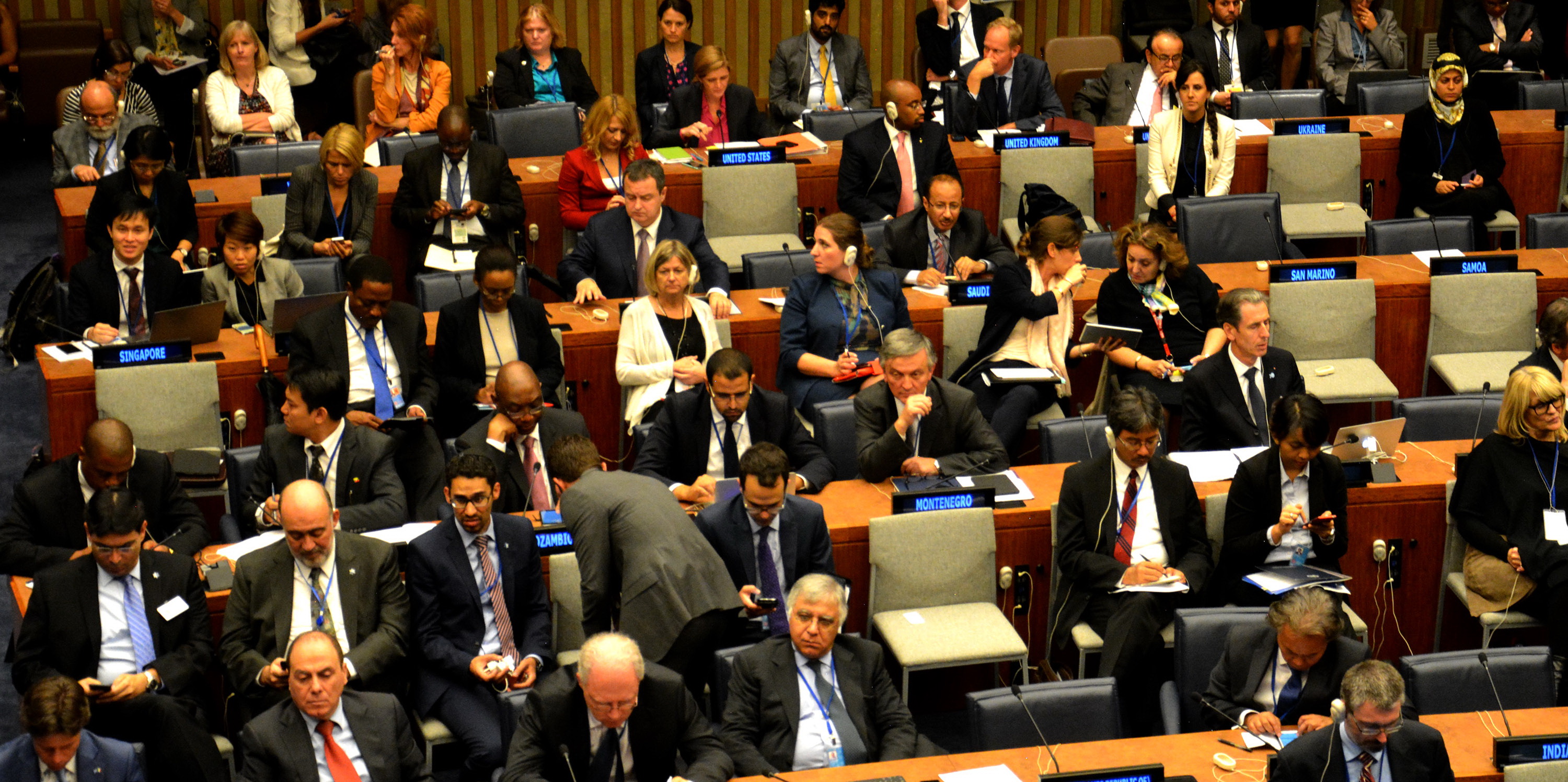



| Thursday, 01 October 2015. | |
| Minister Dacic in New York attends High-level side-event on “Strengthening cooperation on migration and refugee movements under the new development agenda” | |
| + larger fontnormal font- Smaller font |
 Mr. Secretary-General, Mr. Secretary-General,Excellencies, Ladies and Gentlemen, I would like to thank the Secretary-General for organizing this exceptionally important and timely meeting to discuss one of the most pressing issues of the world today. Every day these days a large number of people are coming our way from the Middle East, Africa and Asia, especially from Syria, Iraq and Afghanistan. Fleeing the brutality of war and violence, they look for security and hope for solidarity, protection and better life. What we are faced with is a massive migration of peoples, the largest Europe has witnessed since World War Two. It presents serious challenges for the countries the migrants are leaving behind, transiting through or are their desired destinations. Excellencies, The current crisis is telling evidence of the interrelatedness of faraway countries and peoples and highlights the need for finding comprehensive solutions. A couple of days ago, we adopted a new transformative agenda of sustainable development until 2030, wherein we emphasized that all vulnerable population groups should be strengthened, including refugees, internally displaced persons and migrants. Concerted measures are to be taken and activities embarked upon in order to meet the needs of people living in areas affected by complex humanitarian situations and terrorism. An active approach and the implementation of the sustainable development goals which include reduction of poverty and respect for human rights are key factors of sustainable development and are designed to stabilize the situation in the countries in crisis-ridden areas. If we do not solve the problem of migrants and refugees, Mr. Secretary-General, the pressing issue of the moment, we shall not be able to address the lofty goals of sustainable development that we have set ourselves. In addition to coordination among States, the United Nations has the most prominent role to play in this process by rendering support to its Member States in implementing the 2030 Agenda for Sustainable Development. Serbia is most directly interested in this type of cooperation. Ladies and Gentlemen, Serbia straddles the main transit route of the big wave of migrants from war-affected areas. Thousands of people set foot on the Balkan route every day to reach the European Union. Since the beginning of this year until mid-September, over 140 000 migrants crossed the State border of Serbia. And even though their desired destination is not Serbia but the countries of the European Union, for us it presents a new, very complex challenge indeed. In facing up to the challenge, my country has shown consistent responsibility and constructiveness, as well as readiness to seek solutions in cooperation with our European partners. What we need, Mr. Secretary-General, are concerted international efforts, especially those focusing on finding solutions to crises and ending conflicts in the countries of origin. Short of active dialogue, supported by the international community and aimed at solving crises in these countries, it is not possible to expect that a proper, coherent and comprehensive answer will be found for the current migrant crisis that will address the root causes of the problem. The only proper and effective solution is stabilization of crisis areas; we have to work hard on it in order to achieve long-term solutions and create conditions for refugees and migrants to return home. Regrettably, Serbia has had its own painful experiences with refugees and internally displaced persons. 44 000 refugees from Bosnia and Herzegovina and Croatia continue to live in Serbia and we have taken care of them for two decades now, while out of 220 000 internally displaced persons who left Kosovo and Metohija after 1999 only 1.9 per cent returned home. We have an obligation towards them since that problem is not smaller at all than the problem of the migrants from the Middle East and Africa. The very fact that the Serbian people, too, were forced to flee the fog of wars in the recent past in order to save life makes us understand the situation of the people coming from the crisis areas of the Middle East and Africa and sensitive to their problems. Ladies and Gentlemen, Partial and local steps, such as closing borders or erecting fences, are not solutions; cooperation and coordination at the level of the European Union and the entire international community, however, are. For its part, Serbia demonstrated readiness at all levels to confront the situation and do, responsibly, what it should and could do, for which it received recognition and acclaim from all over the world. Yet, we need solidarity, assistance and support, including financial, from our better-off partners, especially from the European Union. For, notwithstanding its good will and readiness to take up its part of the burden and responsibility, Serbia cannot cope with the problem if left to its own devices. Demonstration of greater solidarity, resolve and readiness to provide a collective political response to the current crisis is what is called for. No country can shoulder the massive burden all by itself. We need joint action to be followed by political agreement and the creation of conditions for sustainable peace and development since common problems call for common solution policies lest the situation run out of control and degenerate into a humanitarian crisis of immensurable proportions and unforeseeable consequences. As we strive to find a collective approach, Mr. Secretary-General, I take this opportunity to assure you of the firm commitment of my country to unstinting cooperation in the quest for the solution of the situation in the spirit of valid international standards and the principal values which continue to be the mainstay of the European communality. Thank you. |